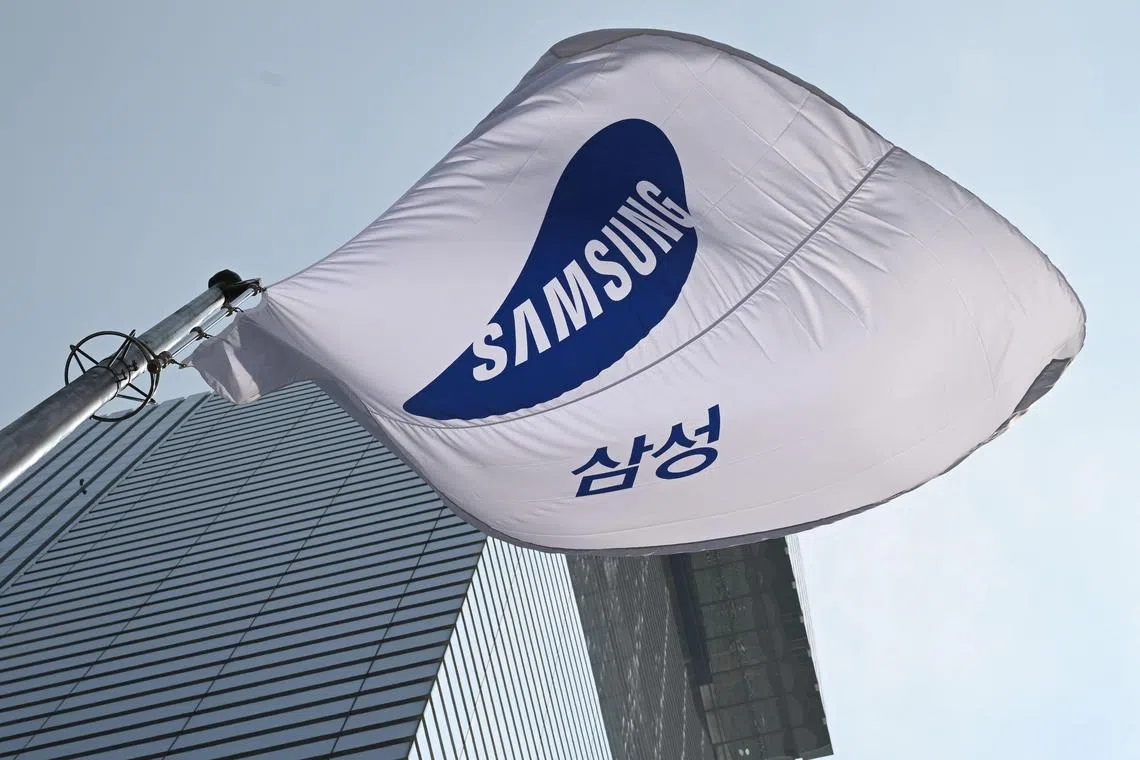Samsung says tariff agreement reduces uncertainty, expects Tesla deal to boost orders
Sign up now: Get ST's newsletters delivered to your inbox

Samsung forecast a gradual second-half recovery after its chip profit plunged 94 per cent in the second quarter.
PHOTO: AFP
Follow topic:
SEOUL – Samsung Electronics said a trade deal that will see the United States charge 15 per cent tariffs on imports from South Korea reduces uncertainty, as it forecast more major chip orders after signing a US$16.5 billion (S$21.4 billion) deal with Elon Musk’s Tesla.
“Building on this milestone, we anticipate securing additional orders from large customers,” Samsung vice president Noh Mi-jung said of its struggling contract chipmaking business during an earnings conference call.
Samsung’s new US semiconductor factory in Texas, which is expected to make chips for Tesla, is on track to begin production in 2026, she said.
The Texas project is central to Samsung chairman Jay Y. Lee’s strategy of expanding beyond its bread-and-butter memory chip business into high-end contract chip manufacturing, which is dominated by Taiwan’s TSMC.
Ms Noh’s comments came after the company posted 4.7 trillion won ($S4.4 billion) in operating profit for the April-June period, its weakest earnings in six quarters.
The South Korean tech giant forecast a gradual second-half recovery for its overall business, without providing further details.
Second-quarter operating profit at its chip division plunged 94 per cent from a year earlier, it said, hurt by delays in supplying the latest AI chips to Nvidia and US export curbs on advanced semiconductor sales to China.
Samsung’s deal with Tesla this week came just days ahead of a much-anticipated tariff agreement with Washington announced by President Donald Trump on July 30 that for now eases tensions with a top-10 US trading partner and key Asian ally.
Focus on AI chips
Prolonged weakness in Samsung’s performance has deepened investor concerns over the South Korean company’s ability to catch up with smaller rivals like SK Hynix in developing high-bandwidth memory (HBM) chips used in AI data centres sold to customers including Nvidia.
Last October, Samsung said it was making progress on a major deal to supply HBM3E chips to an unidentified customer that analysts said was Nvidia.
Samsung warned on July 31 that the supply of HBM3E chips has been growing faster than demand, which would affect pricing.
The tech giant said it has provided samples of its next-generation HBM4 chips to customers, with a plan to supply them in 2026. The customers are expected to include Nvidia, analysts said.
Samsung said it expected the industry environment would improve in the second half, driven by AI chip demand due to continued investments by major cloud service providers.
Meta Platforms and Microsoft on July 30y pointed to strong AI chip demand and major investments in data centres in their earnings announcements. REUTERS

